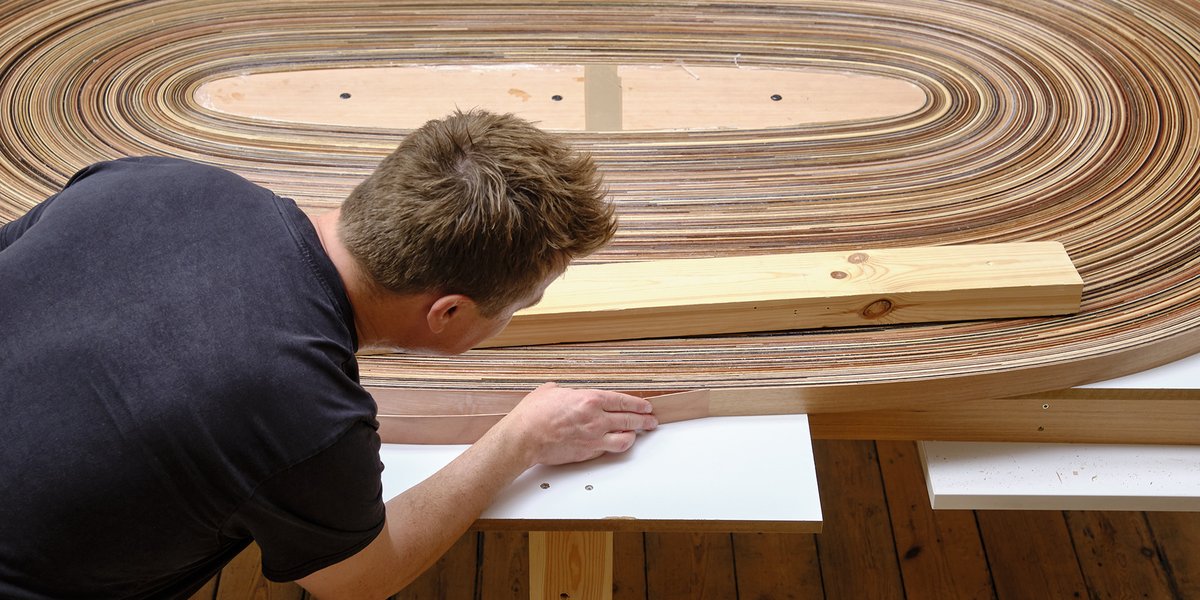Freyja & Conor Wild
"It's so easy for work in that contemporary space to become alienating, so we aim to make our work generous and welcoming. When you rock up to a ROOKE show, you are going to be welcomed with open arms. No matter who you are."
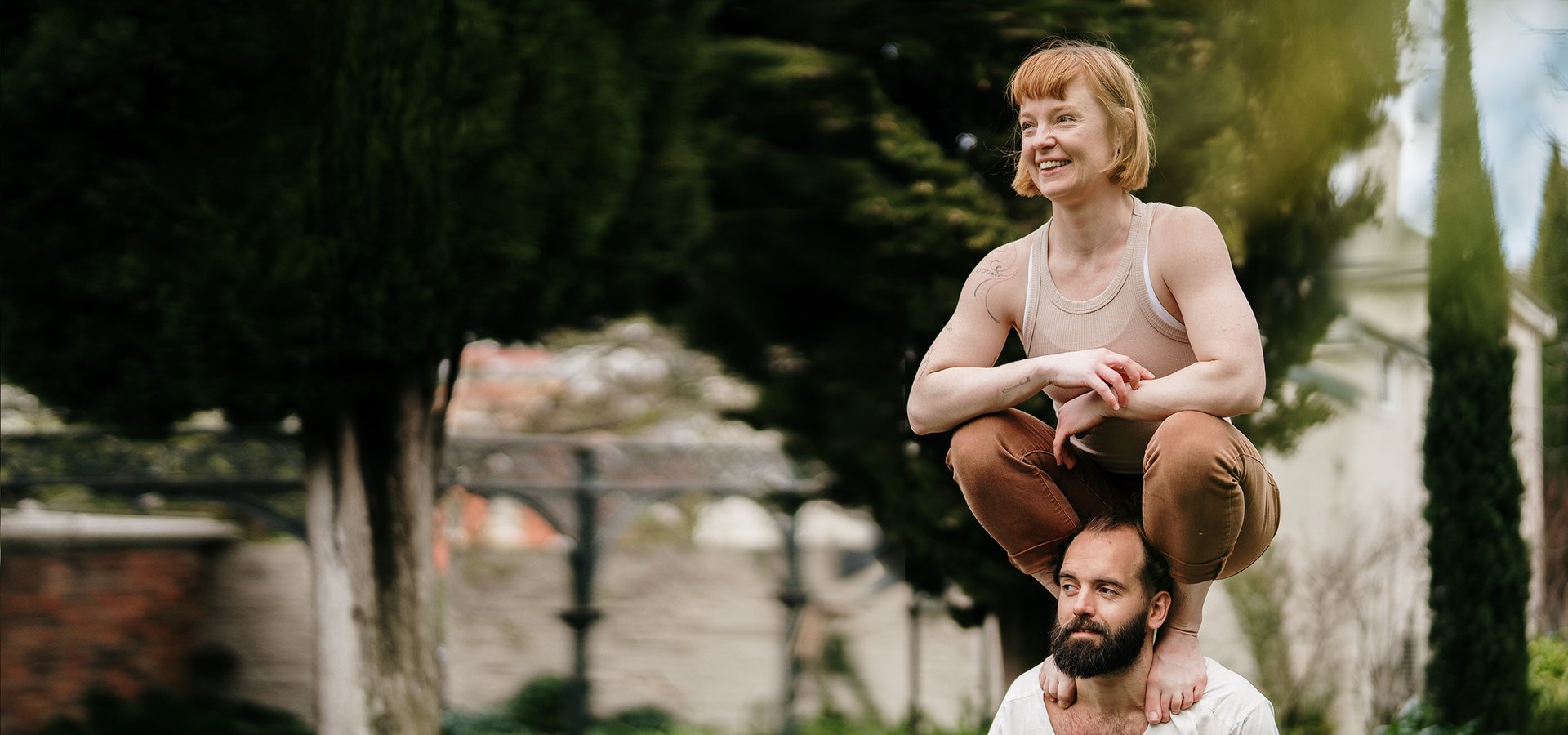
"We want to do work that is relevant to Tasmania and the environment here. If we're asking people to sit down and watch us for an hour… it's got to be damn good."
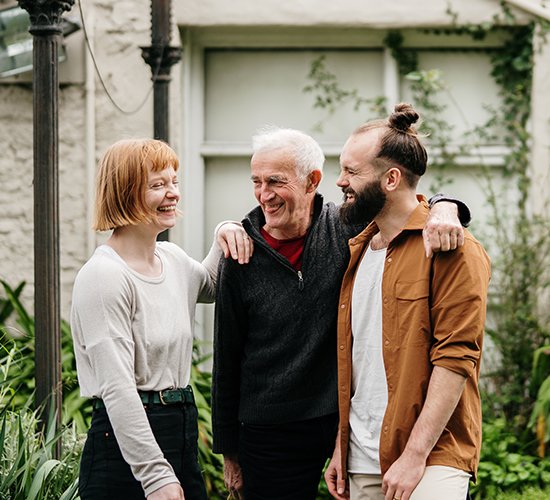
When you hear the word ‘circus’, what comes to mind? Perhaps big top tents, or moustachioed men. Clowns packed into too-small cars, death-defying stunts, or performing lions and tigers. A mental image that is hard to let go of, but a style of performance that is no longer the norm.
Contemporary circus – circus that combines some aspects of ‘classic’ circus with storytelling, dance, and theatre performance – has been around since the late 20th century. It’s one of a handful of artforms that are redefining what ‘circus’ means around the world, introducing audiences to a different style of performance and slowly breaking free of the traditional stereotype. In Launceston, northern Tasmania, a troupe of world-class performers are using their small, connected community to fast track this circus education.
Freyja and Conor Wild grew up in opposite corners of the globe. They had very different childhoods – Freyja in Melbourne and Conor in London – with one key similarity: a healthy dose of resolute determination.
“My mum took me to see a circus show when I was three, and I was like… that’s what I want to do,” says Freyja. “The earliest you could do circus classes was seven, so I had to wait. I did ballet, and there were juggling classes, lots of random other stuff to keep me occupied. And then finally I started attending circus classes in Melbourne.”
After a few years taking classes, Freyja was accepted into Flying Fruit Fly Circus, Australia’s only full-time circus training program for students. At 10 years old, Freyja and her mother packed up their lives and moved 300km north, to Wodonga.
When he was 10, Conor had no circus dreams. He just wanted to move his body.
“I was a super physical kid. I had no idea that circus was a thing, or a pathway that I could take, but I got really into parkour. I saw a documentary called Jump London, and realised… oh, that's what I do. I climb things. I jump off them. I balance on things. But now it's got a name, and it's a discipline, a practice. The next day I’m out, now I'm training – I went from playing to training.”
Conor found a group in London that taught parkour classes, and they took him under their wing. At 17, he discovered something new to master: a spinning juggling prop known as a diabolo.
“I switched to a Sixth Form College, and I met this guy who was super into diabolo. Another friend of mine had learnt like, three tricks. I'm super competitive. I decided, I'm gonna teach myself those three tricks. I’m gonna learn all the tricks.”
Conor learnt a lot of tricks. When it came time to decide if he was going to attend university, he wasn’t too keen on the idea – until he discovered he could do a degree in Circus Arts. He was given a conditional offer as a juggler, common when the university expects someone lacks the physicality for acrobatic disciplines. Conor, of course, decided to specialise in acrobatics instead. He finished his degree and performed around the world, before ending up in Australia and joining Circa Contemporary Circus in Brisbane – where Freyja had been working for the last seven years.
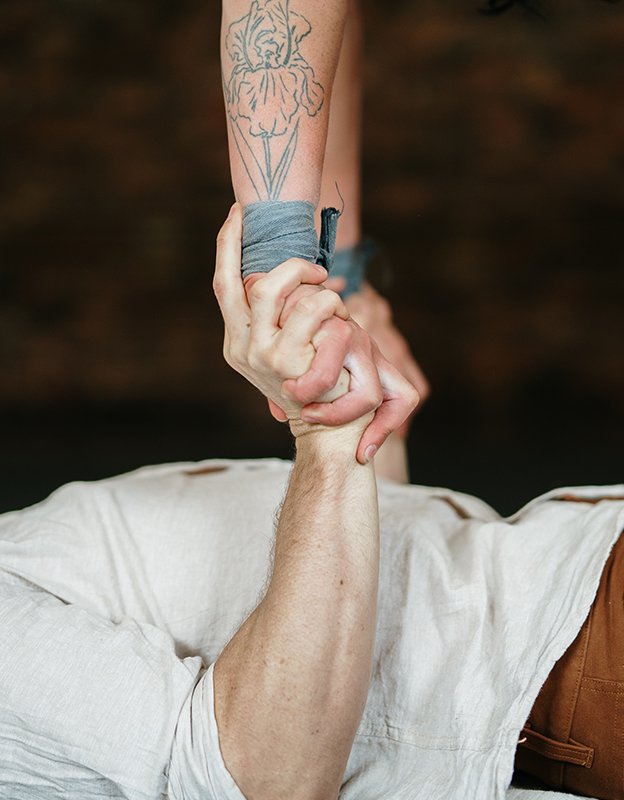
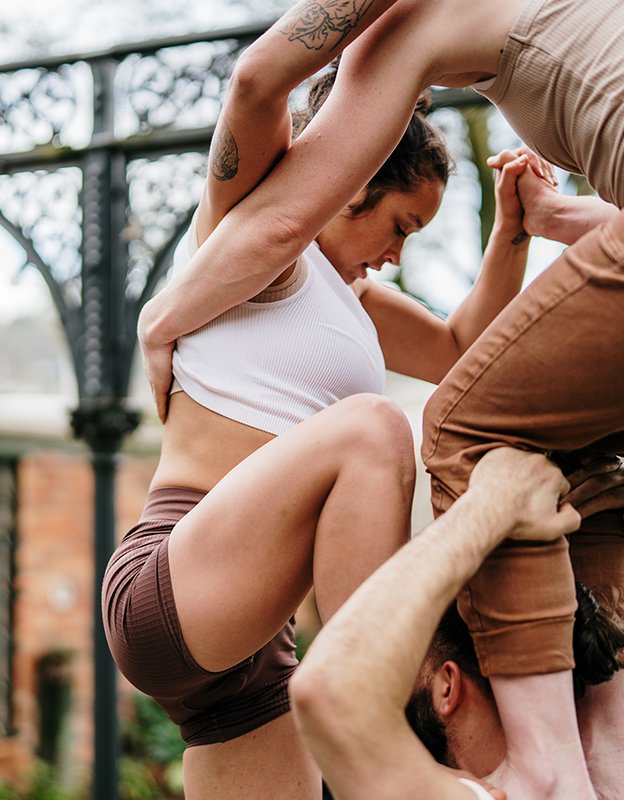
Freyja and Conor fell in love with each other, and then with Tasmania. They got married in Tasmania. They had their honeymoon in Tasmania. They decided to buy a house in Launceston, where they had friends, and rent it out until they were ready to stop touring the world and start settling down. Their son, Otis, was born in Montreal, and they had planned to continue working internationally for at least another few years.
And then COVID-19 happened. It shut down the world, and it took the arts with it. Freyja, Conor, and three-week-old Otis managed to make it back to Australia, and then to Tasmania, before the world locked down indefinitely. Everything they had known for decades – the constant travel, the close community of built-in friends-slash-colleagues-slash-family, the long days of active work – disappeared in an instant, replaced by their first ever place of permanent residence, a city of strangers, new roles as parents, and no guarantee that the kind of work they’d spent years perfecting would ever be possible again.
Not used to doing nothing, they both pivoted to new careers. Conor started teaching acrobatics online, and Freyja set up a business as a health coach. They continued in this new normal for a while, trying to reconcile the people they used to be with who they had become, until they received a phone call from a man they had worked with once before: Tony Rooke.
Tony is, by all accounts, a living circus legend. His career spans decades of performances all over the world, and he first made his way to Launceston in 1972 to run the Princess Theatre and the Albert Hall. He founded the Australian National Circus Festival on his property in northern Tasmania, and has held a front row seat for the evolution of circus performance throughout the years.
“When contemporary circus started, this is like 40 years ago now, I wasn't really a theatre person,” he says. “It was all very strict, very traditional. I loved contemporary circus because it was a bit political, it was empowering artists to do what they wanted to do. Before that it was all quite regimented, geared towards a sort of upper middle class, mature age audience. Well, now it's completely changed. The arts have been reclaimed by the artists.”
In 2021, Tony recognised that northern Tasmania was now host to a handful of world-class acrobats. Not only were Freyja and Conor available for the first time in years, but two more performers named Lewie and Mieke were now calling Tasmania home. Tony saw an opportunity to create something a little bit special, and a little bit different. Launceston’s annual Junction Arts Festival was coming up, and he reached out to Lewie, Mieke, Freyja, and Conor with a proposition.
“It was this moment where we were like, hang on, here is this thing we've been missing,” remembers Conor. “We've watched that bit of life just go on hold for everyone else, so it didn’t feel like it was even an option to try and pursue it. As soon as it was actually viable, we were like… oh, God, we have been really missing this. This is a huge part of who we are.”
ROOKE was born.
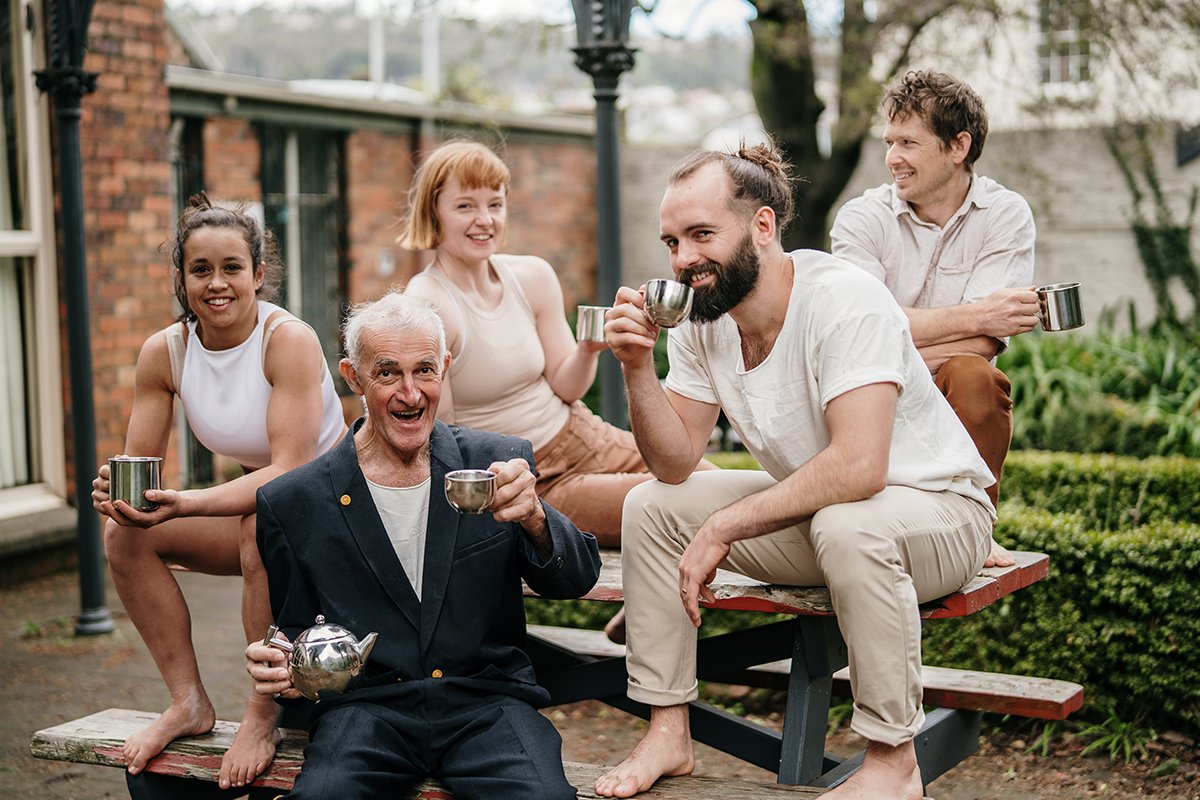
ROOKE performed their first show, Tony’s Imaginary Circus, at Junction in 2021. They’re now officially a full-time not-for-profit arts organisation, working on a series of shows that are specifically designed to change that outdated definition of circus. They’re using Launceston’s small, connected community as a workshop, to introduce big ideas quickly and more deeply than in other, larger, corners of the world.
“There's a lot happening now, it’s exciting seeing the arts come back to life,” says Conor, who has not stopped spinning in his chair as he speaks. “It was amazing doing Junction, and having people coming up to us months later saying, ‘We really loved your show. We've been talking about it for weeks.’ We realised, this doesn't just wow people on the day, it sits with them. A big part of what we want to do is to reframe circus and to educate our audiences. We're quite deliberately building shows that don't step too far away from expectation initially, that gradually creep into that more contemporary artistic domain.”
“It's so easy for work in that contemporary space to become alienating, so we aim to make our work generous and welcoming,” adds Freyja.” When you rock up to a ROOKE show, you are going to be welcomed with open arms. No matter who you are. We’re not going present work that makes you feel excluded.”
ROOKE operate out of Assembly 197, a space they share with other likeminded performing artists. They’re not all circus performers, but they are working together to make Launceston an artistic hub, building a common language across companies and genres.
“We want to do work that is relevant to Tasmania and the environment here,” says Tony, as he drags ROOKE’s padded mats away and sweeps the floor, ready for a ballet class that evening. “If we're asking people to sit down and watch us for an hour… it's got to be damn good.”
Freyja & Conor are featured in partnership with our friends at Junction Arts Festival.

We worked with north Tasmanian photographer Nick Hanson for this Tasmanian story.
Read about more Tasmanians
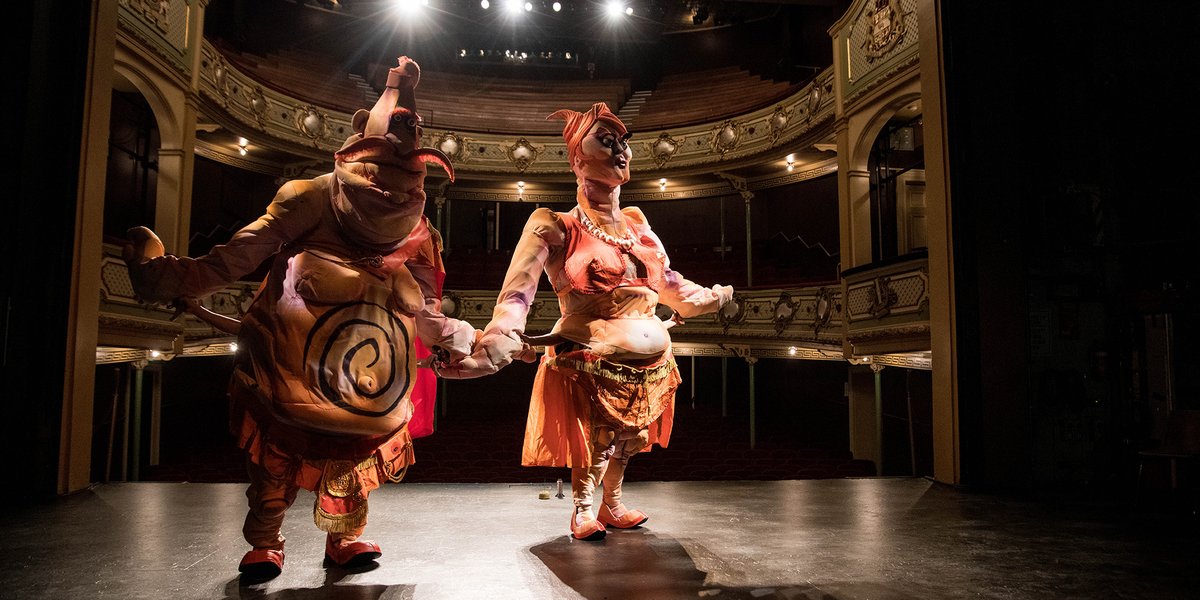
Terrapin Puppet Theatre
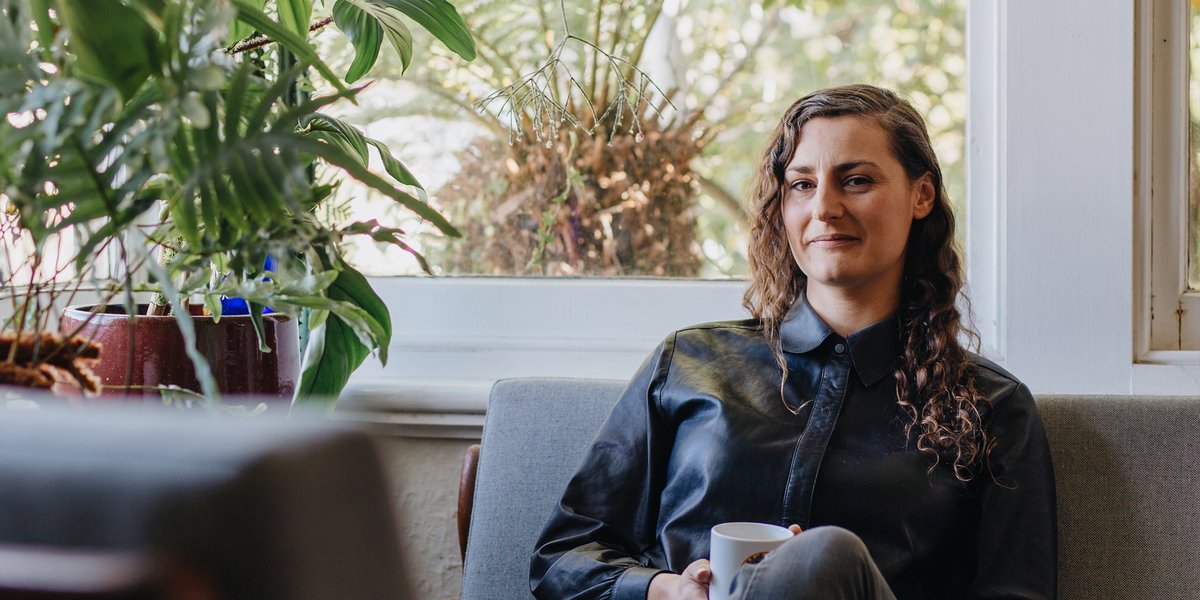
Megan Perkins
